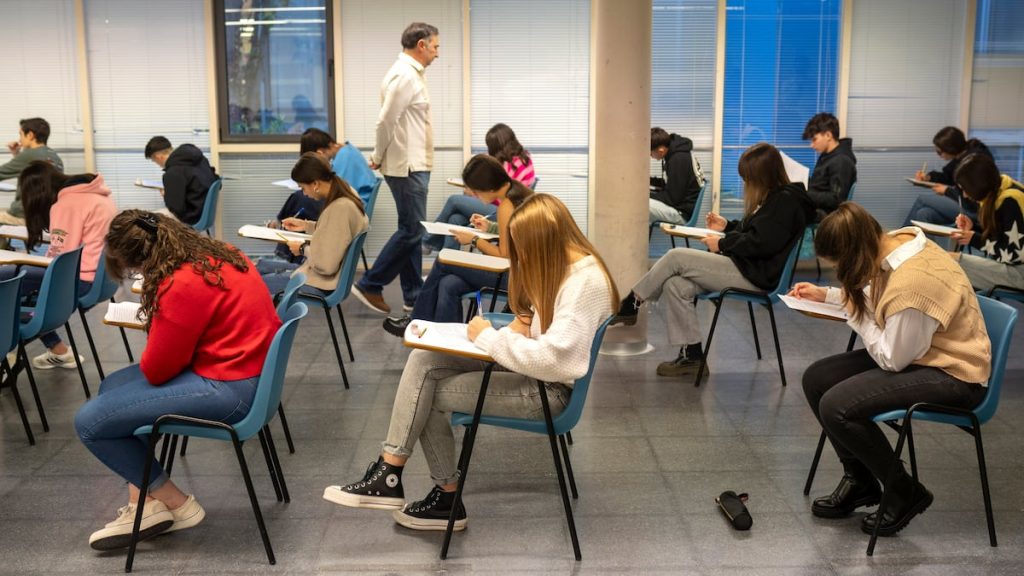Spain ranks relatively well in the new edition of the PISA report, which measures students’ creative thinking. It is ranked 14th out of 64 countries evaluated, with a score of 32.8 out of a theoretical maximum of 60, slightly above the OECD average of 32.7 and the EU average of 32.1. Spain is behind top performers like Singapore and South Korea, but ahead of countries like Italy and Iceland. There are significant internal territorial differences within Spain in terms of creative thinking, with Madrid, Castilla y León, and Galicia leading the rankings.
The PISA report, organized by the OECD, evaluates what students in different countries know and can do at the age of 15, focusing on mathematics, reading, and science. The latest edition, which explores creative thinking, shows that Spanish students perform better in this area than expected based on their performance in core subjects. Spain also demonstrates more equitable results in creative thinking compared to the EU and the OECD. There are differences between male and female students in creative thinking results, with girls outperforming boys. The biggest factor influencing results is social class, with significant gaps between students from different socioeconomic backgrounds.
There is also a difference in creative thinking results between native and immigrant students in Spain, with stronger contrasts in regions like Murcia and Cantabria. The report highlights a correlation between students who excel in creative thinking and those who excel in mathematics, suggesting that proficiency in one area complements competence in the other. Spanish students believe that their schools support their creative development to a lesser extent than the OECD average, indicating room for improvement in this area. Despite some challenges, Spain’s performance in creative thinking is on par with the EU average.
Overall, the PISA report provides valuable insights into students’ creative thinking abilities and the factors that influence these skills. It also underscores the importance of fostering creativity in educational settings to prepare students for the challenges of the future. By addressing internal disparities in creative thinking results and promoting a supportive learning environment, Spain can further enhance its performance in this critical area. The PISA report serves as a tool for policymakers, educators, and stakeholders to identify areas for improvement and implement effective strategies to enhance students’ creative thinking skills.


